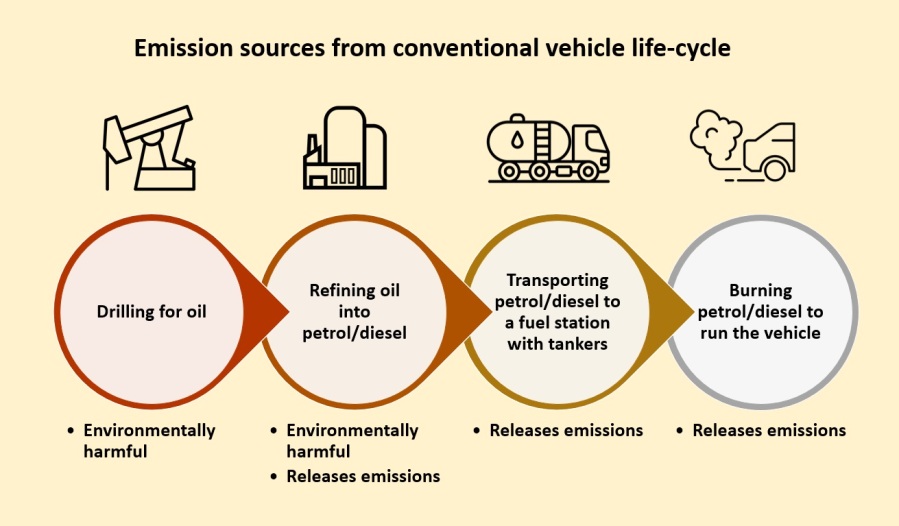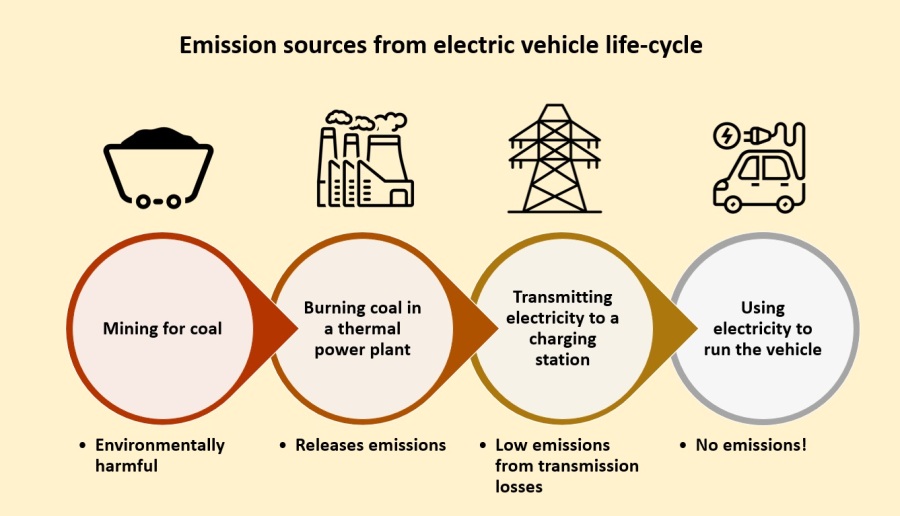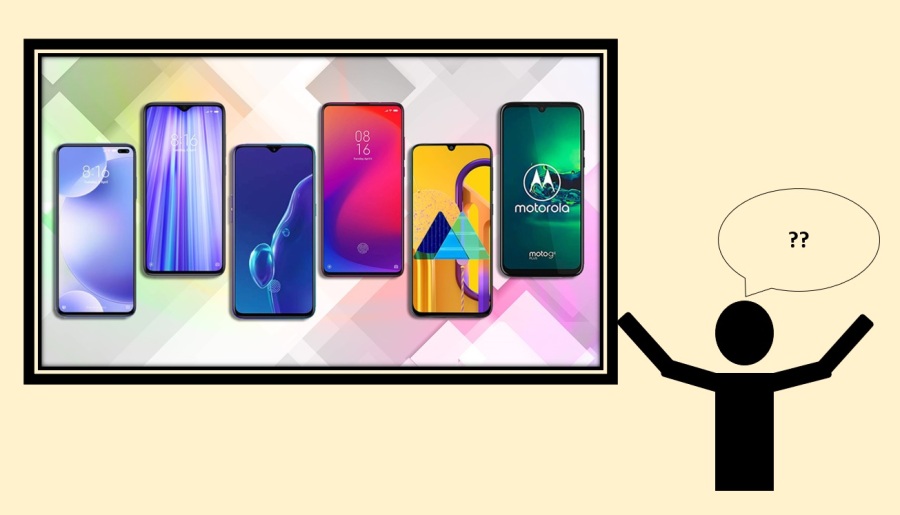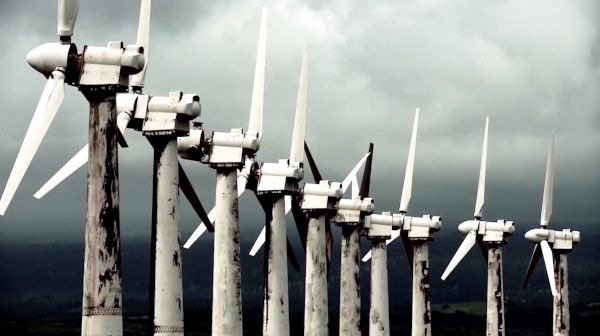Madhu Elecha (“elecha” means “uncle” in my native language) and I were driving back home after attending a wedding. We were having an intense debate...
“We cannot call solar panels ‘green’,” Elecha said as he honked past a slow motorbike.
“Why not?” I asked, holding on to the dashboard as the car swerved. “Solar energy is renewable energy. It doesn’t release pollutants that cause air pollution, and it doesn’t release carbon, which is intensifying climate change!”
“True,” he replied. “But ‘green’ is used to describe anything that has a positive environmental impact, right?”
“Yes…..” I ventured.
“Well,” he continued, “have you considered how solar panels are made?”
“Take quartz, a major component in the panel. It is mined from the Earth. You know how mining works, right? All the trees are cut. Tonnes of soil is excavated, piled to the side and left there. As quartz is removed, clouds of dust shoot up in the air and that causes air pollution!”
So…are solar panels bad? Should we not use them because they indirectly cause environmental harm?
I didn’t have a rebuttal to Elecha then, but I now realize that environmental solutions often face such arguments. The term for this type of reasoning is called the nirvana fallacy.
The Nirvana Fallacy
The nirvana fallacy is a faulty reasoning we use when we find faults with something good because it isn’t “perfect”. We want the perfect alternative/solution. Unfortunately, the “perfect” alternative is often hypothetical or possible only in the future.
Elecha’s argument was a good example of how people use the nirvana fallacy to highlight flaws in many potential environmental solutions and tear them down.
Planet of the Humans is riddled with the nirvana fallacy…
Consider Michael Moore’s latest, highly controversial documentary: Planet of the Humans. The documentary has an important message: Humans need to rethink the way we live. Our planet is finite and cannot fuel our desire for infinite growth.
But it makes this argument by highlighting some flaws with renewable energy technologies like wind and solar.
The film argues that wind and solar are not the solutions for climate change mitigation. They are not the technologies that will take us to a more sustainable, environment-friendly future.
Why?
- Solar panels and wind turbines are made of raw materials mined from the Earth. Mining is environmentally destructive. (This was Elecha’s argument as well.)
- We use fossil fuels while building renewable energy instruments. For example, steel frames form the structure of both solar panels and wind turbines. Steel is made of iron, which is extracted by melting iron ore in a furnace. This process uses coal. Similarly, erecting solar and wind farms require concrete; concrete is manufactured using fossil fuels.
- Solar and wind technologies do not produce electricity reliably. When the sun is shining, solar panels work and produce a lot of energy. But what if it gets cloudy or starts raining? We need to keep the coal and natural gas plants on standby in case this happens. So technically, the documentary argues, solar and wind are not replacing fossil fuels. We will still need the “dirty” fuels in case these “cleaner” technologies do not work.
The argument can be summed up like this: renewable energy technology is bad because to use it, we harm the environment and depend on fossil fuels.
By this logic, walking is also harmful for the environment…
Think about it.
When you walk more, you feel hungrier. You will eat more food.
If the world’s population started walking more, it would need more food.
Agriculture will have to expand by cutting down forests—bad. We will need fertilizers to increase food production—bad, because fertilizers are made using fossil fuels. Fertilizers and pesticides pollute our groundwater, surface water and soil.
Are you now going to walk less and drive more to save the environment?
What’s the problem with this argument?
Yes, we use fossil fuels to build solar and wind energy structures. But we also use fossil fuels to build a thermal power plant or a natural gas plant.
The key difference is, after a solar farm or a wind farm is built, it does not produce any more emissions. Solar and wind farms produce energy using a “cleaner” raw material. The negative environmental impact largely stops after operations begin. These technologies will produce GHG-free electricity during their 20-25 year lifespan.
Conversely, after a coal/natural gas power plant is built, they continue to produce emissions because the raw materials they use are also fossil fuels!
If we were to discard solar and wind on the premise that we harm the environment while they are built, we have to either find a perfect energy source that doesn’t harm the environment throughout its life-cycle or live like its 16th century again.
Do these options sound viable to you?
Are electric vehicles bad for the environment?
The documentary uses a similar argument to debunk the benefits of electric vehicles. The electricity that powers electric vehicles comes mostly from burning coal, because most of the electricity in the grid is still coal-based.
So, electric vehicles are bad and will not offset emissions from conventional vehicles.
This is, again, incorrect…
We can disprove this conclusion by comparing the life-cycle emissions (emissions not just from the car but from the extraction of the fuel till it reaches the car) of conventional vehicles and electric vehicles.


Studies have compared the life-cycle emissions and found that the average electric vehicle in the US emits 4-7 times less emissions than the average conventional vehicle.
I am guilty of this fallacy too…
Last year, I described certain “red flags” in Greta Thunberg’s approach to climate action. I explained that she is being unrealistic, she does not consider the nuances of the climate change debate and is being naïve about how the world political system works.

I’ve realized that I was looking for a perfect solution: an activist that speaks the language of the politicians, eloquently explains nuances and aims for incremental change.
Greta Thunberg may not be that perfect activist. She may not understand the nuances of climate change or the political world. But her action has inspired hundreds of students to come out and march; something ideal activists engaged in nuanced discussions could not achieve.
We shouldn’t encourage the nirvana fallacy…
If we expect a perfect solution for every problem, we would get nowhere!

Imagine that you are looking to buy a new mobile phone. You log on to Amazon and compare all the models in your price range. But you know that one year later, another model that has more storage or a better camera will enter the market—for the same price! So you wait one year before you buy your new phone.
But next year, you realize that if you wait one more year, there will be an even better model in the market. Every year, you decide to wait and buy a better phone next year. How long will you postpone your purchase chasing a better product?
The nirvana fallacy is paralyzing. It makes you lose hope (because a perfect solution doesn’t exist), or it makes you wait indefinitely because something better is just around the corner.
When we are fighting a global ecological crisis…
…we cannot wait for a magic perfect solution. We need to use what we have, while constantly improving it.
I had called Elecha to discuss our old debate while writing this blog post. Thankfully, he agreed that just because solar panels cause some environmental harm doesn’t mean we should stop using them. He hadn’t succumbed to the nirvana fallacy; he just had a problem with the nomenclature. Well…I guess I can concede that.


This is brilliant! Very nicely formulated and put. I enjoyed reading it.
LikeLiked by 4 people
Thank you!
LikeLike
This is such an insightful post! There is no “perfect” solution, only the things you can improve upon.
LikeLiked by 3 people
Thanks a lot, Nitha! You are absolutely right. Perfection is a myth we should aim for but never fixate on.
You haven’t written any post in a while! Eagerly waiting to your next one 🙂
LikeLiked by 3 people
Yes so true!
Aww thanks! Pretty busy right now, so limiting myself to one post a month. That way I can make sure I actually write something worth reading.
LikeLiked by 3 people
Ah okay! Makes sense…
LikeLiked by 2 people
Hi Saurab Babu,
Indeed, I also agree with Nitha! There are a lot of problematic reasonings out there! And you have highlighted a common one, the nirvana fallacy, which is related to the perfect solution fallacy.
I have enjoyed reading your excellent post relating certain environmental issues and attitudes to the vagrancy of the nirvana fallacy. I also like that you care about the environment. Good on you and well done!
You will find very detailed analyses of various fallacies and other wider issues in my extended post entitled “The Quotation Fallacy”. Amongst various outstanding matters, the post discusses specific aspects of “how and what we think” in relation to the fragility, patterns and limitations of human perceptions and bahaviours. The post is published at http://soundeagle.wordpress.com/2017/10/18/the-quotation-fallacy/
In the post, I have had to coin and define several new terms, including the “Quotation Fallacy”, the ramifications of which are very far-reaching. I have also attempted to unpack as much as I can the core issues and fundamental causes that have plagued many folks, whether or not they are victims or perpetrators.
May you find this post informative or beneficial to you in various ways. Though the post is very long and encyclopaedic, the navigational menu there can help you to jump to any section of the post instantly so that you can resume reading at any point of the post over multiple sessions in your own time.
You are very welcome to join the many discussions contained in the nearly 200 comments at the comment section of the post.
In addition, please be informed that you might need to use a desktop or laptop computer with a large screen to view the rich multimedia contents available for heightening your multisensory enjoyment at my blog, which could be too powerful and feature-rich for iPad, iPhone, tablet or other portable devices to handle properly or adequately.
Please enjoy!
LikeLiked by 2 people
Thanks a lot, SoundEgle!
I’ll check your post as well!
Would you mind editing the comment to put a compressed version of the URL? The long form URL you’ve used distorts the screen size when people view posts on a mobile, and that affects search engine results.
Perhaps you can shorten the URL on bit.ly and edit your comment? Would really appreciate it 🙂
LikeLiked by 1 person
Hi Saurab,
As far as I know, that will not affect the search engine results at all. Furthermore, Google and other modern search engines worth their salt are far more intelligent than that, and will not penalize a webpage or website for having long web links, even if/when those links happen to exceed the bounds of the screen of any device, whether they are portable ones or not.
By the way, at the end of my said post, I also mentioned the information ecosystem pollution, the world ecological crisis and the sixth mass extinction.
LikeLike
Hi SoundEagle, I’ve faced this problem when I tested URLs on Google Search Console. Posts where the comments had links, and posts where I had pasted long URLs as references had indexing issues because the links increased the screen size beyond the bounds of the mobile device.
Thanks, I’ll check out your post when I log in through my laptop 🙂
LikeLiked by 1 person
Well, that would be very strange indeed! After all, the machine-readability and indexability of web content are not dependent on the physical screen size and on whether or not the web content has stretched beyond the screen.
LikeLike
I guess its strange. I have no idea how this works…
LikeLiked by 1 person
Hi Saurab,
Further to what I have already mentioned, how texts (including links) and images are displayed is entirely up to web browsers to implement, such as using word-wrapping for text and so on. All browsers worth their salt are supposed to implement text and image display by complying to established standards, regardless of what devices (portable or otherwise) are being used. All of these have nothing to do with search engines.
LikeLike
Okay. Perhaps it is an issue with the theme I am using…
LikeLiked by 1 person
Hi Saurab,
Yes, it could be due to the theme you use, or there could be other reason(s).
I have a number of urgent errands to attend to and I am rushing out this comment to you. I shall reply to your comments on my website later.
You are welcome to read any of my long posts slowly and carefully, and you are welcome to submit multiple comments as your read the different sections of any long posts.
Remember to hover your mouse cursor over any hyperlink or stylized words to see the pop-up tool tip containing further information.
By the way, two of my three comments that I submitted to your “About” page on 29 November 2018 are still awaiting moderation (for your approval).
LikeLiked by 1 person
No hurries, please take your time!
Yes, I figured out how to navigate through the article and the hyperlinks.
Oh! I’m so sorry! That’s very strange, I remember that the comments were approved and I had even replied to it. Let me go check.
LikeLiked by 1 person
Wonderful post
LikeLiked by 2 people
Thanks a lot for taking the time to read this, Preeti! It’s a topic I’ve become very passionate about.
LikeLiked by 1 person
Saurab, a well-presented article about Nirvana fallacy! Whatsmore, any Buddhist should target Nirvana. Did you know that?
LikeLiked by 2 people
Thanks Asitha!
I did! We learnt a bit about Buddhism in school. I enjoy its philosophy 😀
LikeLike
Are you now going to walk less and drive more to save the environment? < Love that comment! Perfect (uh, very very good!) analogy!
LikeLiked by 2 people
Haha thank you so much, Ann! 😀
LikeLiked by 1 person